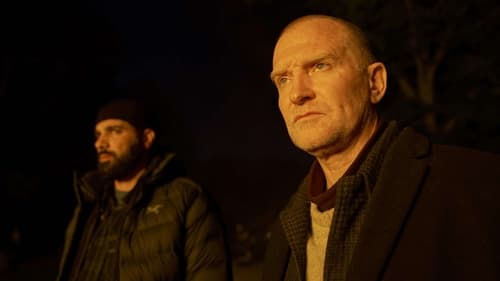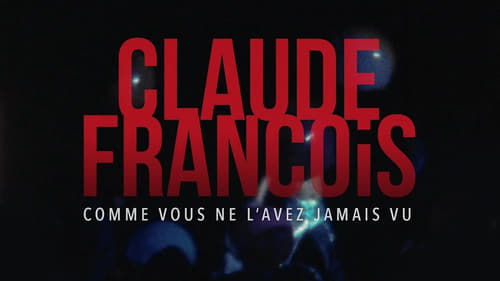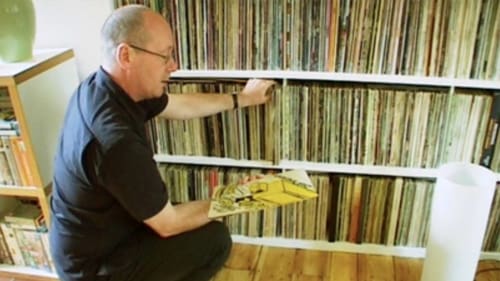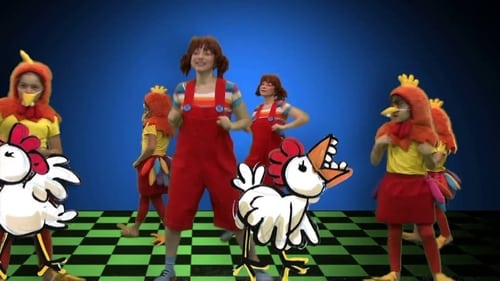Heavy Heart (2017)
Genre : Documentary
Runtime : 1H 16M
Director : Marek Šulík
Writer : Marek Šulík
Synopsis
Documentary film Heavy Heart arose as a part of ethnomusicological research Silalo panori / Cold water (2014 – 2017) of ancient Roma songs. These songs are usually connected with memories and experiences of their interprets. Documentary in a mosaic-like way traces the way of the original Roma music transport to the next generation or also how it ceases to exist under the influence of social changes.

When 14-year-old Marco, a homeless Romani boy, is arrested at the Danish border for possession of a missing public servant's passport, police inspector Carl Mørck and his Department Q team are tasked with finding the connection. The old case contains several suspicious elements: The public servant was accused of pedophilia shortly before he disappeared, and his case was closed unusually quickly. But the silent, traumatized Marco refuses to talk to them and it's not long before he's on the run from those who intend to kill him because of what he knows.

Casimê Celîl was born into a Yezidi Kurdish family in 1908, in a village called Kızılkule, located in Digor, Kars. The village and family life, which he longed to remember throughout his life, ends with the massacre they endured in 1918. During his long road to Erivan, Armenia, he lost all his family members. Left all alone, Casim was placed into an orphanage and was forced to change his name. To remember who he was and where he came from, every morning he repeated the mantra “Navê min Casim e, Ez kurê Celîlim, Ez ji gundê Qizilquleyê Dîgorê me, Ez Kurdim, Kurdê Êzîdî me”, which translates to: “My name is Casim, I am the son of Celîl, I come from the village of Kızılkule in Digor, I am a Kurd, and I am Yezidi”. He clings to every piece of his culture he can find, reads, and saves whatever Kurdish literature or art he comes across. As the year’s pass, Casim finds himself with an impressive collection of Kurdish culture and history.

Larry the Cucumber's vision of the future includes automated robotic hosts telling jokes with random punch lines and musical numbers in which the performers and themes are chosen entirely by chance. As Bob the Tomato quickly points out, the jokes of the future aren't very funny because they don't make sense. Worse, technical malfunctions in the Ventrilomatic hosts actually promote emotional instability. Nonetheless, Bob admits that Larry's vision of the future contains some very cool adaptations of classic songs like Gilbert and Sullivan's fast-talking "Modern Major General" and Binky the Aardvark's solo performance of Mozart's The Barber of Seville. Larry's vision of the future also includes an amusing animated short about greed called "Lunch." Junior Asparagus calls Bob and Larry back to the present with a final song celebrating God's unconditional love.


Spanish-language version of PARAMOUNT ON PARADE (q.v.), with new sequences of interest to Spanish-speaking audiences mixed with original- version sequences.

Join Ozzy Octave and his friends as they sing and dance to their favourite nursery rhymes. Some of the happening songs include 'Polly Put the Kettle On', 'Michael Finnigan', 'Jack and Jill', 'Pop Goes the Weasel' and 'Oranges and Lemons'.

A documentary about the traditional music of the 'Are'are people of the Solomon Islands.

Somewhere in Sweden, a gigantic dumpster breaks free from a heavy chain suspended underneath a big helicopter. The dumpster hits the ground with a formidable crash and the garbage spouts out into the surroundings. Meanwhile, an aging Roma woman wakes up in her house with an extremely strong desire to get her old wall clock back.

Sha//ge, a very young woman about to have her first child, falls ill, probably with malaria. /Ti!kay, a relative and healer, enters a mild trance, without the stimulus of dancing, in an attempt to cure her. Sha//ge lives but the baby is stillborn.

British musician and writer David Toop leads viewers through a tour of his voluminous record collection, reflecting on perception, the limits of music and the connections between seemingly disparate performers. This unusual documentary from filmmakers Guy Marc Hinant and Dominique Lohlé also captures Toop's progression from engagement to near exhaustion as he methodically combs through tens of thousands of records.

For most of the last decade Laurent Jeanneau has been on an urgent mission to record as much as he can of the surviving music of ethnic minorities in South East Asia. Small Path Music takes us traveling in the field with Laurent. What drives him to these remote places? What does he find there?

A documentary about a young Finnish Romany Carmen, 11, who lives with her grandmother and aunt in the suburb of a small town in Northern Finland.

The dance house movement, which (illegally) brought folk music from the minority Hungarian Gypsies and peasants of Transylvania - now part of Romania - to Budapest, and its effect on views of the value of traditional culture.

A Roma beggar on his knees raises many extreme emotions: guilt, rage, sympathy and frustration. Most people just walk on by, but there is always someone willing to help. In this film, the director follows the confrontations between the Roma beggars from Romania and Finnish people, and is forced to question, over and over again, her own ideas about helping.

Hamdija Šahinpašić (1914-2003) was one of those rare individuals able to memorize songs in their authentic traditional form. Šahinpašić belonged to a family known for its songs. In the early 1950's, Miodrag A. Vasiljević recorded Šahinpašić singing dozen of songs at the Serbian Academy of Arts and Sciences in Belgrade. A 1967 publication finally included 300 of his songs, published bilingually in Bosnian and Russian. Šahinpašić himself become the focus of attention of numerous ethnomusicologists and folklorists and his repertoire was preserved on recording of good quality.

Amir, shot during the height of the Afghan civil war in the 1980s, investigates and portrays the life of Afghan refugees living in and around the city of Peshawar in northern Pakistan through the experiences of the musician Amir. The aspirations of Afghan refugees are expressed through their political songs dealing with the civil war in Afghanistan, with exile, with Afghan nationalism and with the Islamic revolution. In highly charged and tragic circumstances, music can be used in very direct ways, both to promote solidarity and as an agent of catharsis.

Documentary film Heavy Heart arose as a part of ethnomusicological research Silalo panori / Cold water (2014 – 2017) of ancient Roma songs. These songs are usually connected with memories and experiences of their interprets. Documentary in a mosaic-like way traces the way of the original Roma music transport to the next generation or also how it ceases to exist under the influence of social changes.

The aviation company for which Ricardo works gives a secretary a trip to Peru.










